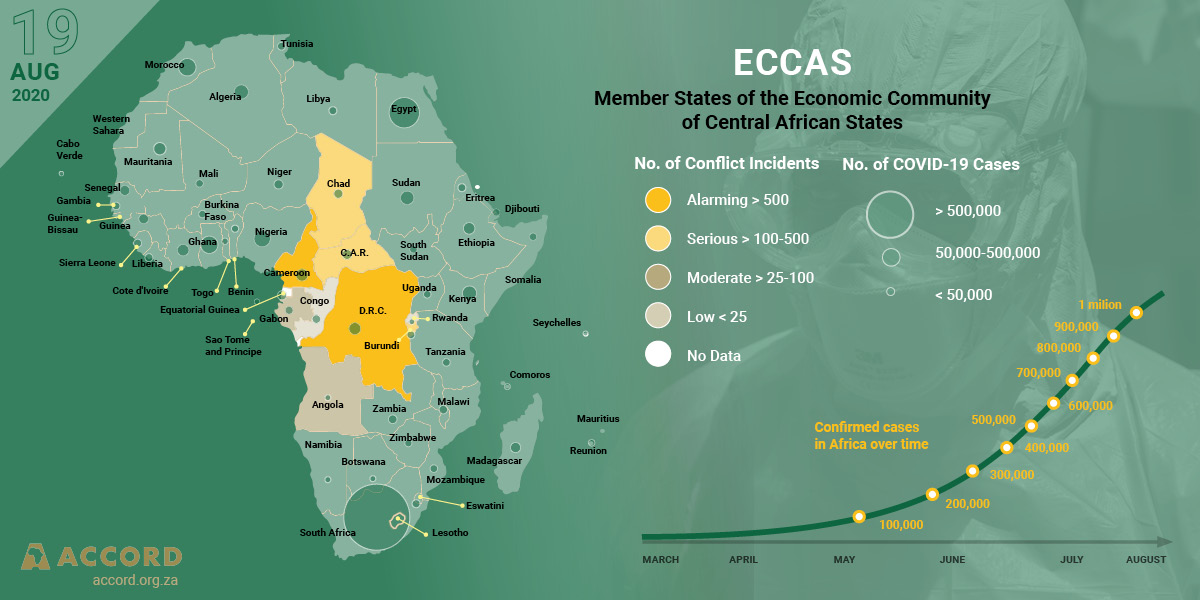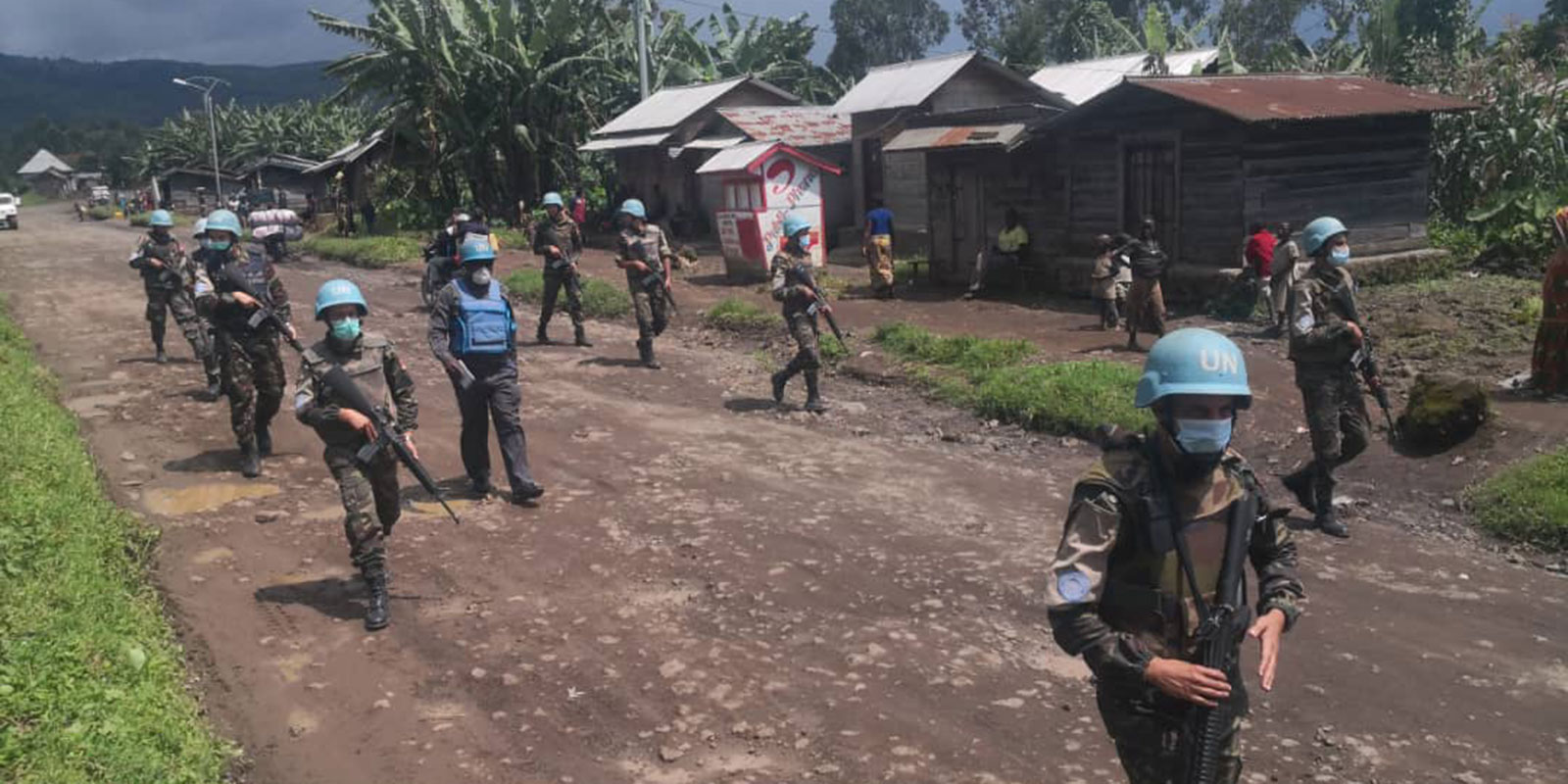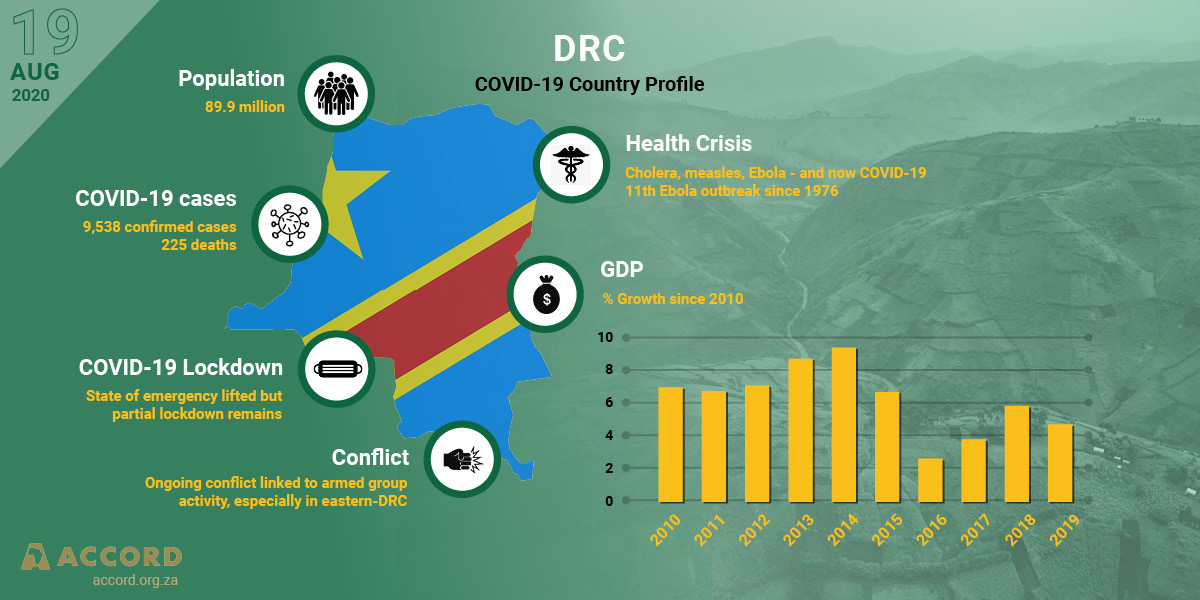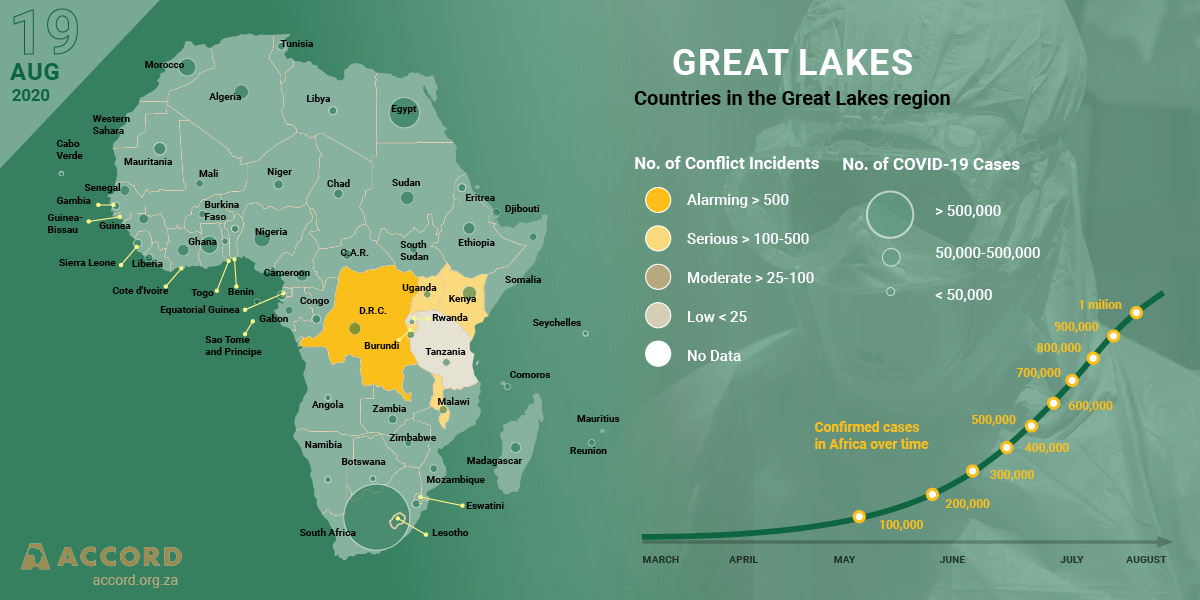This week’s Monitor is a special edition on the Democratic Republic of the Congo (DRC), the Great Lakes and the Central Africa region. It features the perspectives of three senior United Nations (UN) figures in the region, not only about the current impact that COVID-19 has had on the DRC and the region, but also the strides being made to respond and mitigate the effects of the pandemic.
François Louncény Fall, Special Representative of the UN Secretary-General and head of the UN Regional Office for Central Africa, reflects on the impact of COVID-19 on the DRC’s commitment to regional integration in Central Africa.
Huang Xia, Special Envoy of the UN Secretary-General for the Great Lakes region, reflects on some of the efforts to mitigate the impacts of COVID-19 in the DRC and the Great Lakes.
Leila Zerrougui, Special Representative of the UN Secretary-General and head of the United Nations Stabilization Mission in the DRC (MONUSCO), writes about sustaining the mission’s support to peace and stability in the COVID-19 context.
This issue is rounded off by Dr Yvan Yenda Ilunga, who considers some of the current political developments and the implications of ending the COVID-19-related national state of emergency in the DRC.







